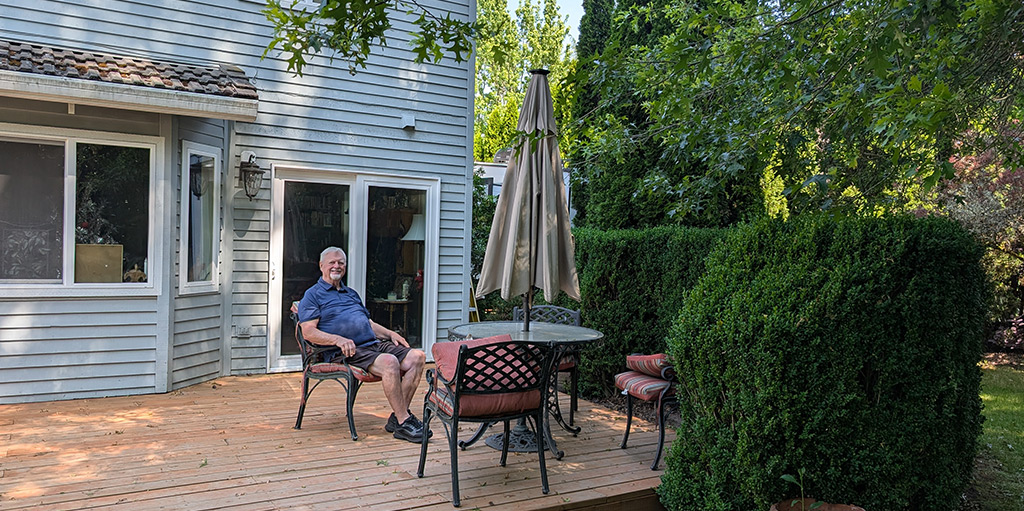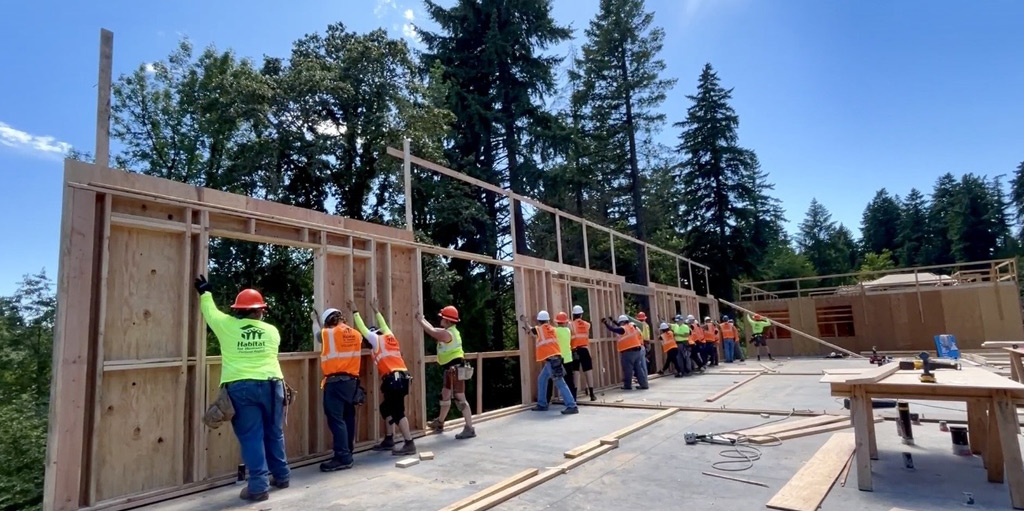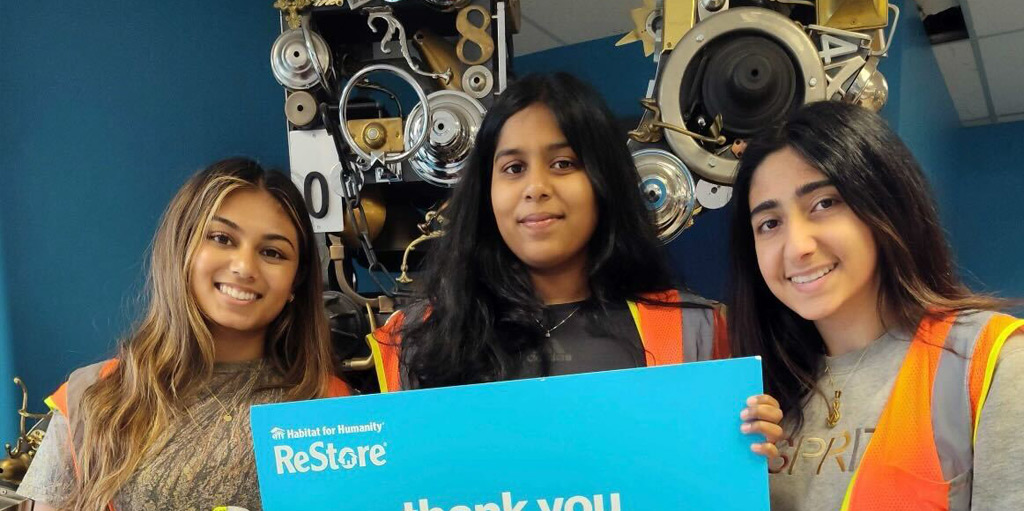Habitat for Humanity Portland/Metro East keeps dollars local and is hoping to establish a land bank to keep affordable homeownership opportunities in Portland.
Portland, Ore. (Dec.18, 2009) – Steve Messinetti, executive director of Habitat for Humanity Portland/Metro East, commonly battles two typical questions when he tells people what he does for a living.
“Habitat builds homes in third-world countries, right?” or “I’d support Habitat, but I want to donate to a local organization.”
Habitat for Humanity Portland/Metro East is a local organization. An independent affiliate of Habitat for Humanity International, the affiliate has built and sold over 190 homes in the Portland area with low-income families, and maintains less than a 1% foreclosure rate. In fact, 33 local Habitat affiliates exist throughout Oregon and are on schedule to build the 1,000th home in the state in 2010. While Habitat enjoys the great name recognition of its parent organization, each affiliate is responsible for doing all of its own fundraising locally, and does this by mobilizing local businesses, faith and community organizations, and individuals to support the work both financially and as volunteers.
The Board of Directors of the Portland/Metro East affiliate recently approved a new five-year strategic plan to increase its production of homes by 50%. The foundation for this plan is to pursue the acquisition of land to support this growth while land prices are low.
“We have been actively searching for deals on land in Portland and Gresham for the past six months, and we are finding properties at costs 40% less than what we paid just 10 months ago,” Messinetti said. “Habitat has set the goal to aggressively build up a land bank for the next 150 homes now, while the prices are low, to allow every donated dollar to go further and enable increased homebuilding locally in the coming years.”
To accomplish this goal they intend to appeal to the community for financial support.
“One of the challenges of being a local affiliate of an international organization is letting people know we are here in Portland, building homes for local families,” Messinetti said. “We’ve seen increased housing needs this past year. We know how permanent, stable housing benefits the physical health of children and keep kids in the same schools. We serve an immediate need by getting families in stable, affordable housing, but the long-term benefits serve the entire community.”
Unhealthy living conditions are not so obvious from the outside. Families applying to the Habitat program have horror stories-children with health problems due to black mold, infestation or inadequate heating. Families making choices between putting food on the table and paying rent. Families living in places with faulty wiring or no electricity because they can’t afford it. Overcrowding as family and friends double-up in small apartments to save money. However, perhaps the biggest affect unstable housing has on the community is mobility. Children being yanked out of schools every time rents rise and a family has to move creates instability in the classroom as well as emotional and physical stress on kids and their parents. In some neighborhoods in east Portland the mobility rate is approximately 60%.
The benefits of homeownership counteract all these problems, creating stability, a healthy living situation, and a sense of pride for our local residents.
Take Carrie Christian for example. Carrie is a single mom who moved into a Habitat home in north Portland in 2007. Once she purchased her home at a 0% interest mortgage after putting in 500 hours of sweat equity several realities set in. First, her mortgage payment was only 30% of her income, allowing her to save money for the first time in her life. Second, working on the construction of her own home gave her the confidence to switch careers, and she got a higher paying job as a professional painter. Finally, her mortgage payments are cycled back to Habitat for Humanity Portland/Metro East and will be used to build another home for a family in need.
“Habitat has really changed my life.” Christian said. “I would have never become a homeowner, always living from paycheck to paycheck. This home is where I am going to be for the next 30 years, and has provided much needed stability for my son.”


